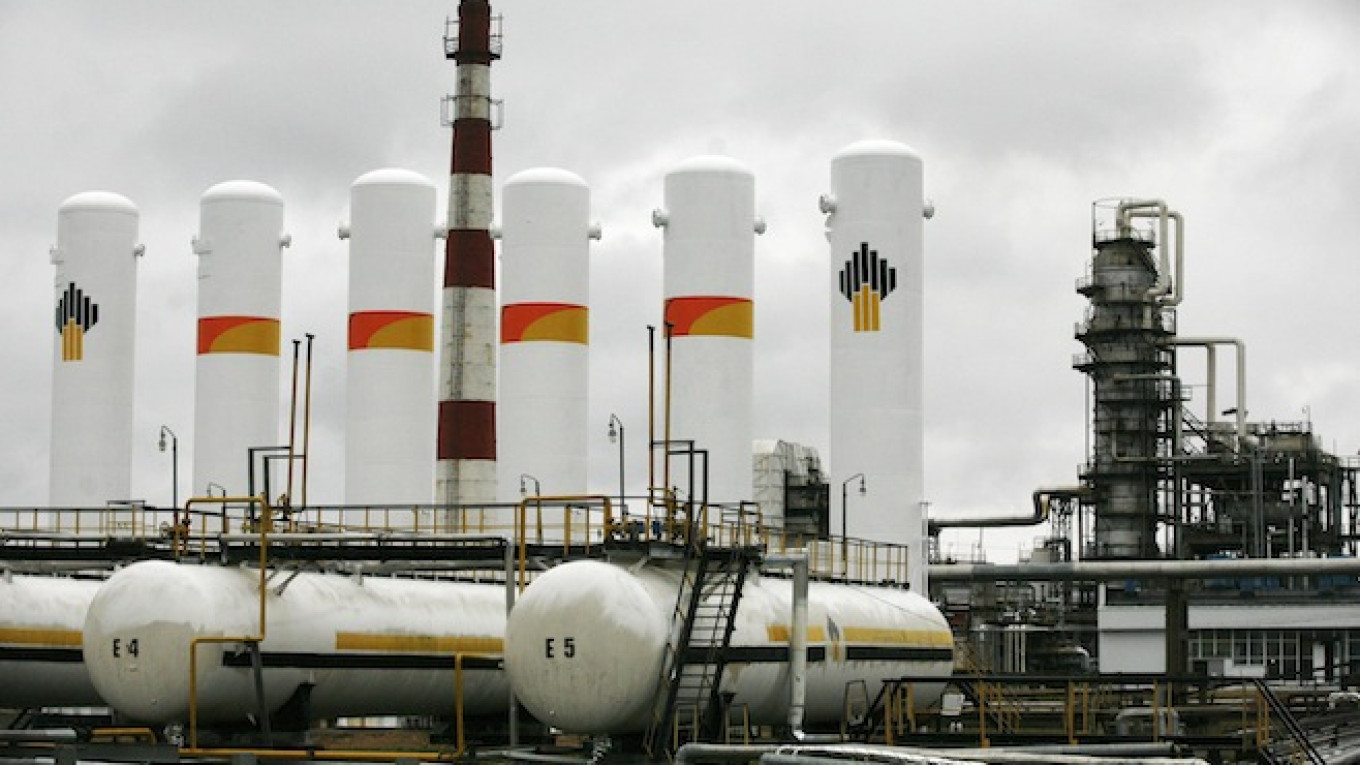The ruble and Moscow stocks extended their losses on Monday after Russia said it would appeal against an international court ruling to pay $51 billion for expropriating the assets of the now-defunct oil producer Yukos.
Russia's Finance Ministry said in a statement that the decision of the arbitration court in The Hague was "politically motivated" and "flawed."
At 5:50 p.m., the ruble, which had been down 0.7 percent against the dollar for most of the session, extended its losses to trade 1.2 percent lower at 35.55, its weakest since the first days of May.
The dollar-denominated RTS index closed down 3.1 percent at 1,207 points, after trading about 2.5 to 2.7 percent down on the day earlier in the session.
"If the Russian government tries to avoid paying these charges, then there will be freezing of Russian assets all over the world," said Andrei Illarionov, a former economic adviser to President Vladimir Putin and now his critic.
Shares of Sberbank, Russia's largest lender, closed 3.1 percent lower.
"Usually, when traders and investors want to bet on an improvement of the situation in Russia, then they buy Sberbank [shares]," said Airat Khalikov, an analyst at Veles Capital in Moscow.
"Unfortunately, now we see the opposite. The decline in Sberbank stocks may be an indicator of a fundamental reassessment of the negative prospects of the Russian economy," Khalikov said.
Rosneft, which received most of Yukos' assets through auctions and had been outperforming the broad MICEX index for most of Monday, recouped some of the early session losses to close 1.2 percent down.
Rosneft, Russia's top oil producer, is not a defendant in the case and said it did not expect any claims to be made against it in connection with the court ruling.
The ruble-denominated MICEX was 2 percent down at 1,363 points, weighed by the rapidly weakening Russian currency.
The ruble also weakened 1.2 percent against the euro to trade at 47.74.
It is also 1.2 percent weaker at 41.02 versus the dollar-euro basket that the Russian Central Bank uses to guide the ruble's nominal exchange rate.
The possibility of new sanctions against Moscow over the conflict in Ukraine is also keeping Russian assets under pressure, analysts say.
The European Union outlined an agreement on Friday to punish Russia for failing to rein in separatist rebels in eastern Ukraine. A decision on sanctions is expected on Tuesday.
See also:
A Message from The Moscow Times:
Dear readers,
We are facing unprecedented challenges. Russia's Prosecutor General's Office has designated The Moscow Times as an "undesirable" organization, criminalizing our work and putting our staff at risk of prosecution. This follows our earlier unjust labeling as a "foreign agent."
These actions are direct attempts to silence independent journalism in Russia. The authorities claim our work "discredits the decisions of the Russian leadership." We see things differently: we strive to provide accurate, unbiased reporting on Russia.
We, the journalists of The Moscow Times, refuse to be silenced. But to continue our work, we need your help.
Your support, no matter how small, makes a world of difference. If you can, please support us monthly starting from just $2. It's quick to set up, and every contribution makes a significant impact.
By supporting The Moscow Times, you're defending open, independent journalism in the face of repression. Thank you for standing with us.
Remind me later.


